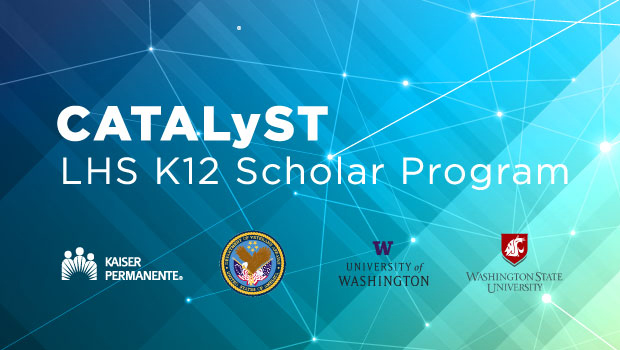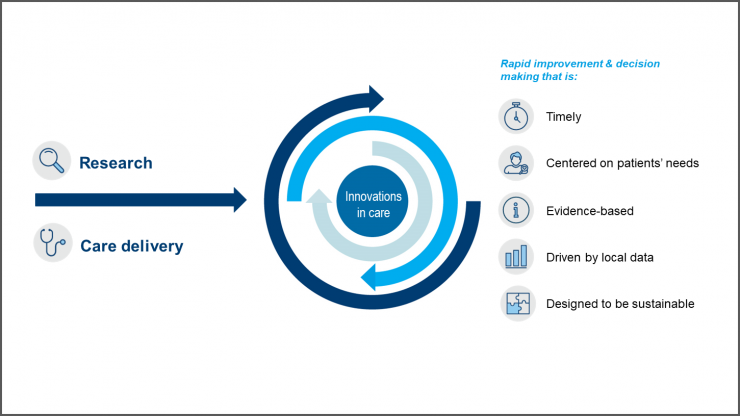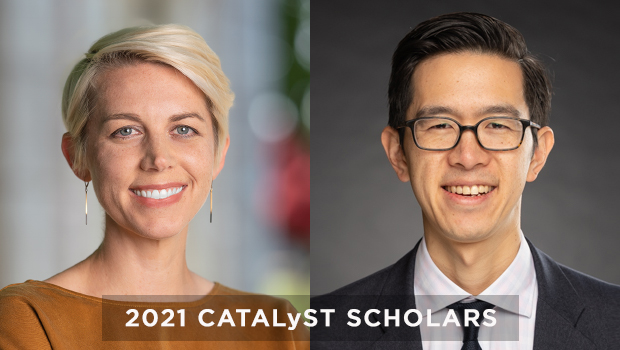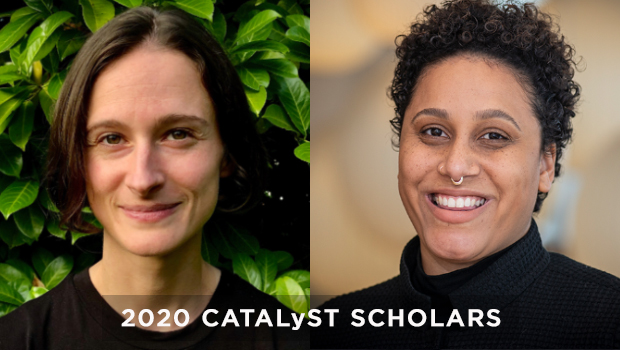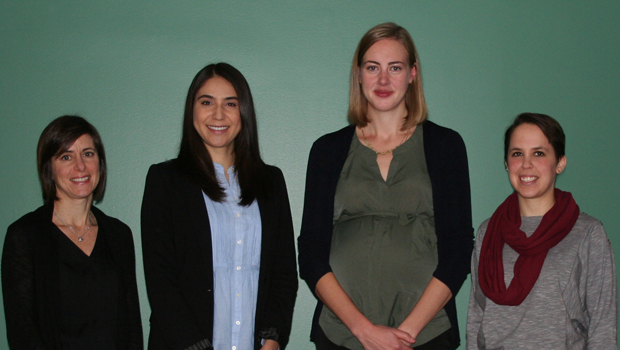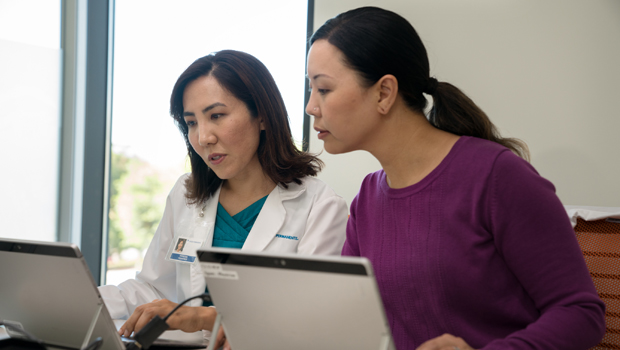Training scientists to transform health care
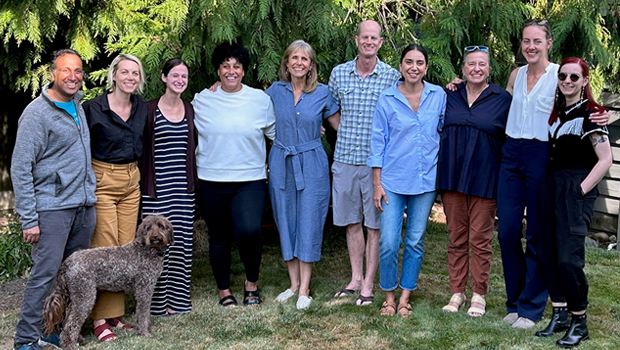
Five years and 8 scholars later, the ACT Center celebrates the impact of the CATALyST training program on early-career scientists
The end of September marked a significant milestone for Kaiser Permanente Washington Health Research Institute (KPWHRI) and the Center for Acceleration Care Transformation (ACT Center): the completion of the CATALyST learning health systems (LHS) K12 training program.
CATALyST was 1 of 11 LHS Centers of Excellence funded by the Agency for Healthcare Research and Quality (AHRQ) and the Patient Centered Outcomes Research Institute (PCORI). The program — a partnership with the University of Washington, the Department of Veterans Affairs (VA) Puget Sound, and Washington State University’s College of Medicine — trained 8 early-career scientists to do research to improve experiences and outcomes for patients, providers, and health care delivery systems.
“The state of health care in the United States is a national concern,” said James Ralston, CATALyST co-director. “This training program set out to equip upcoming health services researchers with evidence-based skills and roadmaps that address many high-priority problems in care delivery.”
During their 2 to 3 years in the program, each scholar had a small mentorship team composed of senior scientists whose research specialties aligned with the scholar’s topic and goals. Scholars presented their research results and future funding ideas at semi-monthly works-in-progress meetings, which often yielded lively and informative discussions and solutions, both from mentors and other scholars.
"Participating in the CATALyST program has been an incredible experience,” said Scholar Kendra Liljenquist. “The opportunity to deepen my knowledge related to learning health systems has afforded me the foundation needed to partner with clinics and communities to conduct truly transformative work.”
Through the program, the scholars received training in the 8 LHS core competencies: systems science, research questions and evidence, research methods, informatics, ethics in implementation, improvement implementation science, engagement and leadership, and equity and justice. They then designed and conducted foundational research in a wide array of health care disciplines to lay the groundwork for their forthcoming research careers.
CATALyST scholars’ research covered a wide array of key areas of health care including: suicide prevention, management of chronic obstructive pulmonary disease, adolescent sexual and reproductive health, adolescent mental health, child development screening, breast cancer screening, dementia care, and care for people with multiple chronic diseases. Recognizing that health care systems particularly need to improve access to quality care for people from historically marginalized populations, many of the CATALyST scholars focused their research on integrating the perspectives and needs of patients from these populations to design interventions that are culturally tailored and inclusive.
To learn more about each scholar’s research specialties and portfolios, visit the links below:
- Yates Coley, PhD — KPWHRI
- Kevin Duan, MD, MS — University of British Columbia (formerly with VA Puget Sound)
- Annie Hoopes, MD, MPH — KPWHRI
- Gwen Lapham, PhD, MPH, MSW — KPWHRI
- Kendra Liljenquist, PhD, MPH — Seattle Children’s Research Institute
- Leah Marcotte, MD, MS — University of Washington
- Maggie Ramirez, PhD, MS, MS — University of Washington
- Linnaea Schuttner, MD, MS — VA Puget Sound
The CATALyST program was funded over the past 5 years with a $3.7 million grant from AHRQ and PCORI. Leading the program and supporting the scholars were Directors Paula Lozano and James Ralston, Program Administrator Susan Brandzel, and Research Support Specialist Xoe Amer, along with multiple scientific mentors from KPWHRI, University of Washington, Seattle Children’s Research Institute, and VA Puget Sound.
“These LHS scholars have formed connections and synergies with one another that will help carry them through their careers,” said Lozano. “It has been an absolute pleasure partnering with them and the rest of the CATALyST community to equip them with the tools and training they need to meaningfully improve health care delivery.”
The CATALyST leadership team extends their gratitude to the myriad individuals who contributed to the program’s completion and success.
By Susan Brandzel
